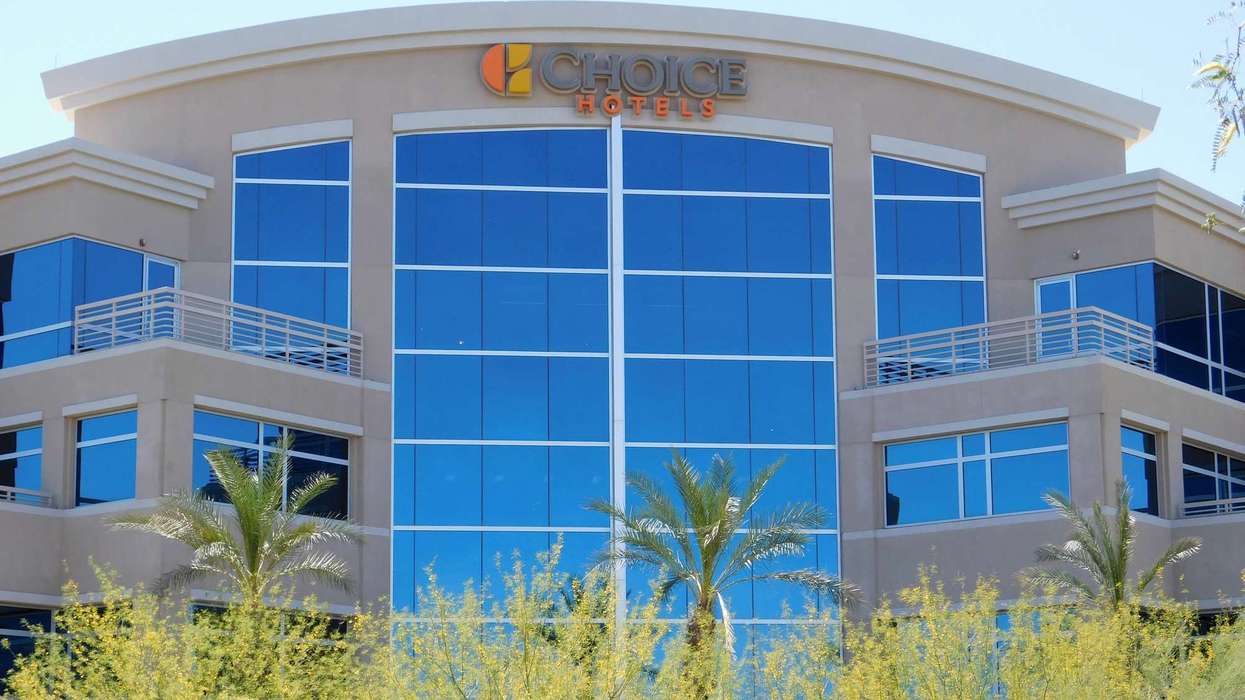IN SEPTEMBER, HEATHER McCrory, CEO of AccorHotels North and Central America, became the first winner of the Castell Award from the Castell Project, an organization dedicated to promoting the careers of women in the industry. Her selection came in part because of her work as executive sponsor for Accor’s international RiiSE network to promote diversity, launched one year ago.
McCrory, who oversees more than 115 hotels, 28,000 employees and $3 billion in revenue, also participates in a formal mentorship program for women within the organization seeking to become general managers. She did research for the RiiSE program on women opting out of leadership roles.
“Heather stood out as a powerful female making a difference in the industry,” Castell Project founder and President Peggy Berg said at the time. “She understands wholeheartedly that as part of an international hospitality company, a more diverse team is a better performing team. Heather is an inspiration to other women as they find their own paths to success.”
McCrory participated in a Q&A with Priya about the significance of receiving the Castell Award.
Were you surprised by your nomination for the award? When did you first learn you had been nominated?
I first learned about my nomination last summer and was both surprised and honored. The values celebrated by this award are attributes I strive to achieve – change maker, trailblazer, gender-equity champion and principled professional. It is a privilege to be the recipient of the first Castell Award.
How has winning the Castell Award helped you professionally? Has it brought you more opportunities to raise awareness about the needs of women in the hospitality industry?
Receiving the Castell Award has provided a spotlight for us to continue to raise awareness about the need and opportunity to increase gender diversity and equity in hospitality, particularly in senior management roles.
It’s allowed me another platform to continue the conversation about the issues women face as they’re progressing in their careers, and about Accor’s commitment to the advancement of more women into senior management. We continue, as an organization, to build our gender equity, diversity and inclusion. It is an important component to the health and vitality of the business, and it is part of a concerted global program, RiiSE.
Globally, Accor has made the commitment to increase the numbers of women general managers and above to 35 percent in 2020.
As CEO of Accor North and Central America my ambition is to rapidly fill the talent slate with qualified and competent women, who are talented and show great promise. Ultimately, my goal is to have 50 percent female general managers.
The consulting firm McKinsey finds that companies that are in the top quartile for gender diversity on their executive teams are 33 percent more likely to experience above-average profitability, in addition to it just being the right thing to do.
Part of your work with RiiSE is to study why women tend to opt out of leadership positions. What have you found to be the primary reasons for that, and what can be done to fix it?
We’ve done a lot of research on the factors that may impact the desire of women to move into senior leadership and the themes that we continue to see relate to work/life balance, mobility, access to mentorship and executive sponsorship, and a lack of clarity regarding career pathing.
Women have historically been very team-oriented, while men tend to be more focused on their own abilities. This perspective can really shortchange women when it comes to self-promotion and advancement to the higher ranks. We need to better advocate for ourselves and each other in our careers, and this extends to involving senior level men to promote women, seeking equality as a whole.
We’ve seen that this type of advancement requires sponsorship and mentoring from all senior leaders to retain our best and brightest, guide them and keep them engaged whether they are male or female.
It isn’t about quotas or simply achieving a goal – it is about increasing the number of women on the candidate slate. We need high performers who aspire to these challenging but ultimately attainable roles. We need to pick the best candidate and, naturally, if we have more women on the slate – we will increase our percentages toward gender equality.
Advancement requires self-confidence, initiative, curiosity, the drive to take a risk, the appetite to fill knowledge gaps and actively seek mentorship. This applies to all candidates, not exclusively to women, and we’re actively providing the platforms within Accor to help with this type of career progression.
You work with the program’s mentorship program, too. Who was, or is, your mentor?
I’ve found if a person is ambitious and they don’t have a mentor, it’s a distinct disadvantage.
I’ve had a number of informal mentors, both men and women, whom I’ve worked with and for over the years. Some of those relationships go back decades, and these mentors have always been willing to work issues/concerns through with me.
There is a real objectivity in a mentor. They know what both my strengths and my gaps are and have been very helpful in how best for me to course correct. Those relationships have been incredibly valuable because they have pushed me out of my comfort zone, encouraged me to build my skillset, and they really have helped shape my career to its fullest potential.
Did you face obstacles in your career related to your gender, and if so, how did you overcome them? How does that experience translate into your advocacy for other women?
Over the course of my career I’ve never really thought about or looked at my gender as a hindrance. I’ve always been very career minded and found that I had equal opportunities when I sought them out or they were presented to me.
But if you ask any woman if they’ve faced obstacles because of their gender, and they say they haven’t, then I would be very surprised.
In my case, I’m very tenacious and oriented to finding a solution when facing obstacles, so any instances of that sort of challenge were not really an issue, or it provided an added incentive to work around it. I was able to take it in stride even if it has been frustrating at times.
I have first-hand knowledge, and a lot of hindsight now, and it simply solidifies my belief that senior leaders, both men and women, have to advocate, mentor and model the opportunities that are attainable for women for there to be meaningful change.
What parts of the Castell Project do you think are most beneficial to women? What more can be done?
The Castell Project is an incredibly powerful change agent in totality, but the two elements I’m most excited about are the Build Program for emerging leaders and the Elevate Program for executive women. We’ve participated for the last two years and each program provides either high-potential women leaders, or those already in the executive ranks, the opportunity to sharpen the saw on some very important topics.
Also, the opportunity for senior women to network between companies is very important and these programs provide that.
Accor has the commitment and organizational programs in place for the long term, while the Castell Project provides an industrywide impact that will also keep the momentum going more broadly.
Achieving gender equity in the hospitality industry is a marathon, not a sprint. In order to have equality at the C level and GM levels we need to continue a consolidated effort year after year, initiative after initiative.
Who do you think would be a good candidate for the next Castell Award?
There are many women leaders who embody the spirit of the Castell Awards. Nominees could include women like those participating in the ALIS: Women’s Leadership Forum at the end of January.
Some of the women participating are on the board of the Castell Project, but someone like Andrea Foster, the senior vice president for development at Marcus Hotels & Resorts, has been making a difference in the industry as a co-founder and co-chair of Boston University School of Hospitality Administration’s “5th Gear Shift: Women Powering and Navigating Their Careers” symposium that began in 2017.*
Leeny Oberg, executive vice president and CFO of Marriott International, would also be an excellent choice as a global trailblazer.
It would be great to see either of them recognized for the Castell Award as I see them living the values in their contributions to the industry consistently. It is critical for senior women leaders to lead and support gender equality within their organizations and/or business community.
*Editor’s note: The program has since evolved into the Boston University School of Hospitality Administration Leadership Summit. The 2020 program is set for March 20 and 21 at Commonwealth Hotel in Boston.





